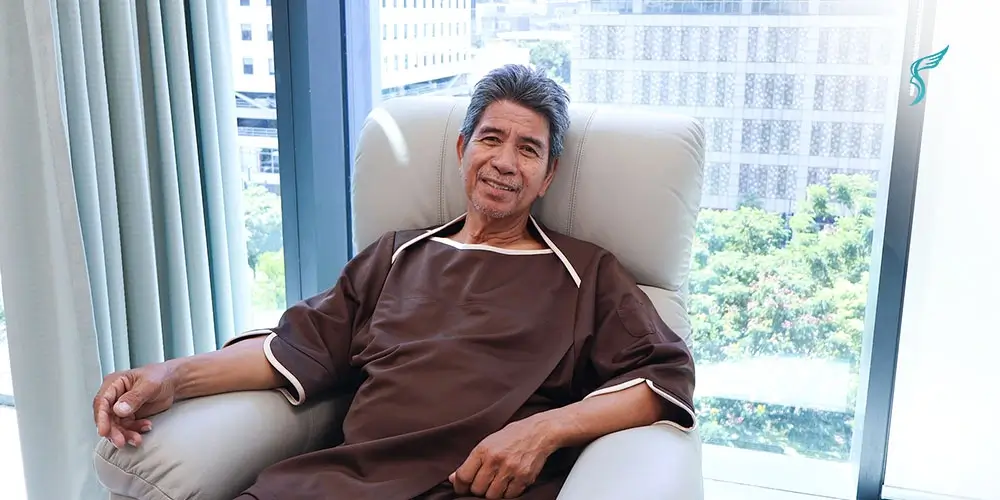After having a Colonoscopy, it’s normal for your digestive system to feel a bit sensitive, as the lining of your colon has just been thoroughly cleaned and examined.
For this reason, what you eat after plays a crucial role in soothing the gut, rehydrating your body, and ensuring a comfortable recovery.
Understanding Your Body After a Colonoscopy
Before your scheduled visit, patients need to complete bowel preparation to clear out the digestive tract. While this is necessary for a clear view of the colon, it can also leave the gut temporarily sensitive, causing bloating, gas, or mild cramping afterward.
During the procedure, air insufflation may be used to expand the colon for better visibility. This can lead to mild discomfort after sedation. For most people, these symptoms improve within a few hours.
The goal of your first few meals is simple — rest the digestive system, restore electrolytes, and ease back into regular eating.
What to Eat During the First 24 Hours
Immediately after the procedure, start with clear liquids to keep your body hydrated without overloading your digestive system. Opt for water, clear broth, herbal tea, apple juice, or oral rehydration solutions (ORS). These fluids help replace the electrolytes lost during bowel cleansing and prevent dehydration.
Once you no longer feel nauseated, you may progress to soft and easily digestible foods. The best options for the first day include:
- White rice or mashed potatoes (without skin)
- Scrambled eggs or soft tofu
- Plain yogurt or gelatin for mild sweetness
- White bread, saltine crackers, or plain noodles
These foods belong to a low-residue, bland diet, which produces minimal stool and avoids irritating the colon. Just remember to eat slowly and listen to your body as it’s best to take smaller portions at first.
What to Eat as You Recover (Day 2 and Beyond)
After 24 to 48 hours, most patients can begin gentle reintroduction of regular foods, provided there are no complications such as polyp removal or biopsy sensitivity. Continue choosing non-irritating, soft foods such as:
- Baked or broiled chicken (skinless)
- White fish like cod or tilapia
- Cooked, peeled fruits such as bananas, canned peaches, or applesauce
- Soft cooked vegetables like carrots or pumpkin
For gut health, add probiotics like plain yogurt or kefir. These restore gut flora and help balance your microbiome after bowel cleansing. You may also incorporate prebiotic-rich foods later on, such as bananas or oatmeal, once your body feels comfortable.
It’s important to note that full recovery differs for each person. Always follow your doctor’s advice, especially if you’ve undergone polypectomy or if you experience prolonged discomfort.
Foods to Avoid After a Colonoscopy
Certain foods may irritate the intestinal lining or cause excessive gas while the gut is still recovering. For the first 48 hours, avoid:
- High-fiber foods such as whole grains, raw vegetables, legumes, and nuts
- Spicy or acidic meals including garlic, chili, curry, and citrus juices
- steak, or any tough, hard-to-digest meat
- Carbonated beverages, coffee, and alcohol
These items can increase bloating, cramping, and dehydration. Once you are symptom-free and your doctor approves, you may slowly resume a normal, balanced diet rich in fiber, fruits, and vegetables for long-term colon health.
Hydration and Gut Recovery
As mentioned, part of your colonoscopy preparation involves thorough bowel cleansing, which can cause your body to lose a significant amount of water and electrolytes. Drink plenty of non-carbonated, caffeine-free fluids throughout the day, such as water or electrolyte-enriched beverages, to help prevent dizziness and fatigue.
To rebuild your digestive strength, focus on restoring your gut microbiome. Include probiotic-rich foods such as plain yogurt or fermented milk, and soft prebiotic options like bananas when tolerated. This supports the growth of beneficial bacteria that maintain healthy digestion and nutrient absorption.
Experience a Gentle and Delicious Recovery at Shinagawa Diagnostic
At Shinagawa Diagnostic, we understand that both preparation and recovery play a big role in your colonoscopy experience. That’s why we make sure Japanese-standard healthcare goes beyond the procedure itself — extending to the thoughtful care you receive afterward.
Through our VIP Shinagawa Dock with Colonoscopy package, patients not only benefit from precise and expert screening but also enjoy a well-deserved moment of comfort after their procedure. Each patient is treated to a complimentary Japanese bento meal, allowing them to recharge and relax in our cozy lounge area.
It’s one of the many ways we bring the precision, hospitality, and care of Japanese healthcare closer to Filipinos.

